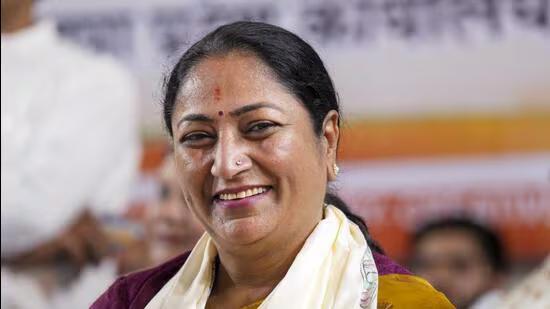
For First Time, Centre, State & MCD Have a Common Goal: Delhi CM
In a rare display of intergovernmental harmony, the Centre, State, and Municipal Corporation of Delhi (MCD) have converged on a common goal: to ensure the growth and development of the national capital. This significant shift in dynamics was recently acknowledged by Delhi Chief Minister Rekha Gupta, who attributed it to the successful partnership between the Centre and the State government.
In an interview, CM Gupta highlighted the stark contrast between the current scenario and the past, where governments were often mired in petty squabbles and bureaucratic red tape. “For the first time, there’s a positive vibe where the Centre, State, and municipal corporation are working together with a common goal,” she said. This newfound cooperation, she believed, would ultimately benefit the people of Delhi.
Gupta’s remarks are a testament to the remarkable progress made by the current administration in Delhi. Since taking office, the government has been working tirelessly to address the city’s pressing issues, from pollution and traffic congestion to infrastructure development and civic amenities. The partnership between the Centre and the State has been instrumental in driving these initiatives forward.
One of the most significant projects undertaken by the government is the Yamuna Development Plan. This ambitious plan aims to revamp the Yamuna River, which has been a source of pride and concern for the city. The project involves the construction of a new riverfront, the creation of public spaces, and the implementation of sustainable measures to reduce pollution.
The Centre’s support for the Yamuna Development Plan has been instrumental in its success. The Union Ministry of Environment, Forest, and Climate Change has provided significant funding and technical assistance to the project, ensuring its timely completion. The State government, meanwhile, has been responsible for overseeing the project’s implementation and ensuring that it meets the highest standards of environmental sustainability.
The cooperation between the Centre, State, and MCD is not limited to the Yamuna Development Plan. The government has also been working together to address the city’s pollution problem. In recent years, Delhi has struggled with severe air pollution, which has had serious implications for public health. To combat this issue, the government has introduced several measures, including the implementation of the Odd-Even traffic rule, the promotion of electric vehicles, and the creation of green corridors.
The Centre’s support for these initiatives has been crucial in their success. The Union Ministry of Road Transport and Highways has provided significant funding for the development of green corridors, while the Union Ministry of Environment, Forest, and Climate Change has worked closely with the State government to implement measures to reduce pollution.
The partnership between the Centre, State, and MCD is not limited to environmental issues. The government has also been working together to address the city’s infrastructure needs. In recent years, Delhi has experienced rapid growth, which has put pressure on its infrastructure. The government has responded to this challenge by investing in the development of new roads, public transportation systems, and civic amenities.
One of the most significant infrastructure projects undertaken by the government is the development of the Delhi-Meerut RRTS (Regional Rapid Transit System). This ambitious project involves the construction of a new high-speed rail line that will connect Delhi to the city of Meerut. The Centre has provided significant funding for this project, which is expected to revolutionize public transportation in the region.
The partnership between the Centre, State, and MCD has also been instrumental in addressing the city’s civic amenities. In recent years, Delhi has struggled with issues such as waste management, sanitation, and healthcare. The government has responded to these challenges by investing in the development of new infrastructure and the implementation of innovative solutions.
One of the most significant initiatives undertaken by the government is the development of the Delhi Waste-to-Wealth Mission. This ambitious project involves the conversion of waste into energy, which will help reduce the city’s reliance on fossil fuels and minimize its carbon footprint. The Centre has provided significant funding for this project, which is expected to have a significant impact on the city’s environment.
In conclusion, the partnership between the Centre, State, and MCD is a significant development in the history of Delhi. For the first time, the three governments have come together to address the city’s pressing issues and ensure its growth and development. This partnership has been instrumental in driving initiatives such as the Yamuna Development Plan, pollution reduction measures, infrastructure development, and civic amenities. As Delhi continues to grow and evolve, it is essential that the Centre, State, and MCD continue to work together to ensure the city remains a thriving and sustainable metropolis.






